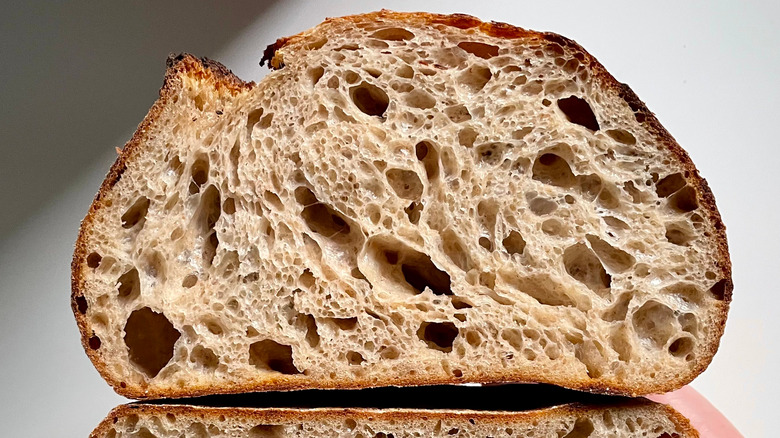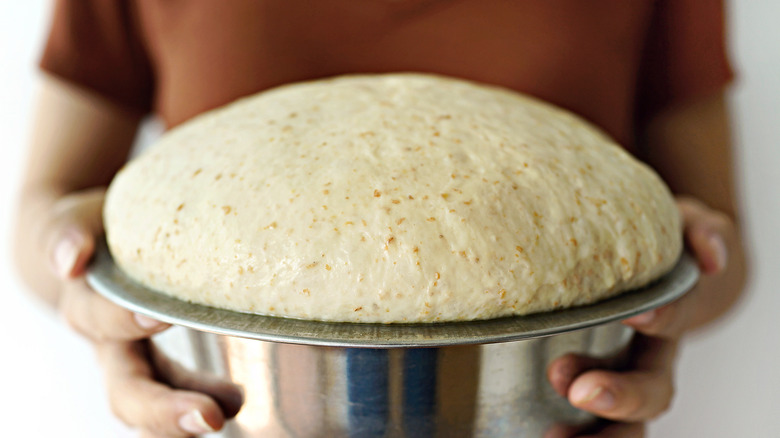What It Means If Your Sourdough Loaf Turned Out Flat
Bread is an old part of the human diet, at least in its rudimentary form, without all the delicious perks we add today, like refined baking flour, sugar, and neatly packaged yeast. We have been eating bread for over 10,000 years since we began growing grains and cereals (via NPR). But since then, bread has come a long way. According to Russian Life, it became the slogan for the Russian revolution, as the impoverished cried for "Peace! Land! Bread!" History tells us that a large part of the French revolution was launched due to many issues, including a national bread shortage.
Bread is deeply cherished by both rich and poor, and one that has been favored for many a century is the delectable sourdough. Sourdough is a particular bread notable for its use of wild yeast, light open crumb, and satisfyingly crispy crust (via The Perfect Loaf). It's a popular choice for grilled cheese sandwiches, avocado toast, and dipping in your winter soups. But sourdough isn't without its challenges and can fall flat if not watched carefully.
Keep an eye out for overproofed dough
Sourdough is a leavened bread that Vimeo describes as a bread that has activated wild yeast creating carbon dioxide, which becomes trapped in the dough and elevates it before you put it in the oven. You might be inclined to believe that since this part of the sourdough-making process is hands-off, it will be the easiest part. However, it's quite the opposite since you must constantly be checking in for the unfortunate case of overproofed sourdough. But why is it so bad that your sourdough is overproofed? Doesn't that mean your bread is going to be extra fluffy?
When your proofed bread enters the oven, it is supposed to experience a second carbon dioxide boost once the dough reacts to the heat, giving the bread a final satisfying puff. But if your dough is overproofed, it will not expand. Instead, it may collapse since all the carbon dioxide was already spent during the proofing process (via MasterClass). Sourdough's leavening agent must go through this two-step rising process to successfully create your desired crumb, and messing up the proofing process by letting the dough rise too much or too little will surely affect the outcome of your bake.

